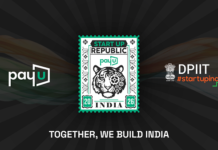Ahmedabad, Gujarat, India | 5thSeptember 2025: India’s pharmacy and healthcare sector is one of the fastest-growing industries globally, fueled by rising healthcare needs, an expanding population, and demand for affordable medicines. Valued at over ₹2 lakh crore in 2024, the pharmaceutical retail market is growing at a CAGR of 10–12%, driven by higher disposable incomes, urbanization, and the rising burden of chronic diseases such as diabetes, hypertension, and cardiovascular conditions.
Branded vs. Generic Medicines in India
India’s pharmaceutical market is defined by its dual structure:
- Branded drugs – Sold at premium prices due to marketing and distribution costs.
- Generic drugs – Chemically identical, up to 80–90% cheaper, and accounting for nearly 80% of total drug consumption.
Despite affordability, many patients still prefer branded medicines due to perceived quality differences and strong influence from doctors who are often swayed by pharmaceutical marketing.
Why Generic Medicines Matter
Medicines make up nearly 65% of out-of-pocket healthcare spending in India, making cost-effective generics crucial for accessibility. With chronic illnesses on the rise, the demand for affordable treatment is driving both policy reforms and the growth of organized retail players.
Government initiatives such as the Pradhan Mantri Bhartiya Janaushadhi Pariyojana (PMBJP), which runs Jan Aushadhi Kendras, and price caps under the National List of Essential Medicines (NLEM) have improved affordability. However, challenges such as supply consistency, consumer trust, and limited awareness persist.
Role of Private Companies in Generic Medicine Retail
Private limited companies have emerged as game-changers by addressing gaps in trust, supply chains, and awareness. Leading players include:
Medkart
- Offline-first model with pharmacist-led advisory.
- Educates patients on generic vs. branded equivalence.
- Offers up to 70% savings on chronic medicines.
- Expanding beyond Gujarat into new states.
DavaIndia
- Franchise-driven expansion by Zota Healthcare.
- Wide portfolio with thousands of SKUs.
- Attracts both individual patients and small clinics.
- Focus on bulk savings and competitive pricing.
Zeelab Pharmacy
- Hybrid offline + digital retail model.
- Integrates teleconsultation support for patients.
- Subscription plans for chronic care affordability.
- Positions itself as a tech-enabled pharmacy brand.
Comparative Landscape
- Jan Aushadhi (Government) – Affordable but inconsistent supply and limited brand visibility.
- Private Retail Chains (Medkart, DavaIndia, Zeelab) – Scale, trust-building, and structured advisory.
- Digital-first Platforms (1mg, PharmEasy, NetMeds) – Convenience and reach, but often highlight branded discounts alongside generics.
Consumer Trends & Market Drivers
Indian consumers are shifting toward cost savings, especially post-COVID-19, but trust issues remain. Market dynamics are shaped by:
- Digital Health Growth – Online pharmacies and telemedicine drive price comparisons.
- Chronic Disease Burden – Long-term treatments demand affordability.
- Insurance Expansion – Growing, but still limited, influence on drug purchases.
Barriers include: counterfeit concerns, regulatory scrutiny, and resistance from branded pharma lobbies.
Expert Insights
- Health economists stress that generic substitution can cut medicine bills by up to 70%, easing India’s healthcare burden.
- Doctors are increasingly open to prescribing generics but cite patient trust as a major barrier.
- Regulators call for stronger quality monitoring and post-marketing surveillance to prevent counterfeit risks.
Future of Generic Medicine Retail in India
The next 5–10 years will see double-digit growth in generic medicine retail, powered by affordability demands, government support, and scaling of organized retail chains.
Key trends shaping the future:
- Hybrid retail models – Offline advisory combined with digital convenience.
- Technology adoption – AI-driven substitution, digital prescriptions, and e-consultations.
- National expansion – Regional players like Medkart scaling up nationwide.
- Mainstream acceptance – Generics set to dominate as branded pharma faces price pressure.
Bottom Line
India’s generic medicine retail sector is entering a phase of rapid expansion and consolidation. Companies that combine affordability, trust, and accessibility will lead the way in reshaping healthcare delivery and reducing out-of-pocket costs for millions of Indians.







